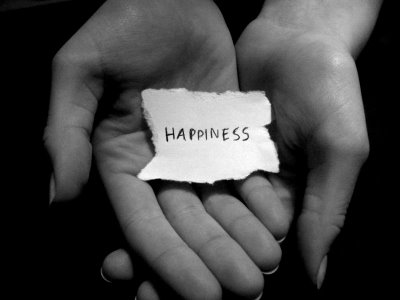There are scads of nonfiction books out there on the happiness topic. Then there are the “Who’s Happier” studies the media loves to talk about. Earlier this month Good Morning America joined the collection of television and print media with what it says is a “hot button question:” Who is happier, parents or non-parents? When you see these kinds of segments reporting on research in this area, or see the research itself, here are two key questions to ask yourself:
1. Does the study differentiate the non-parent group?
The GMA segment reported that a survey of one million consumers indicates that, “at the end of the day” parents are happier than non-parents. However, this survey has the flaw that other studies like this have. It does not differentiate between those who want children and don’t have them, those who want kids but don’t want them yet, those who are undecided, and those who have no kids by choice. If it did, the research could have answered questions like these: How does happiness compare between mothers and fathers and those who don’t have children but want them someday? With those who are not sure if they want kids or not? With those who are childfree – chosen not to have them? With those who want them and have not been able to have them? Without discerning non-parent status the “who’s happier” question is really not answered.
2. Is “happiness” operationally defined?
Like the non-parent differentiation flaw, few studies operationally define happiness for research purposes. This can be a reason why when it comes to studies like these the jury continues to be out. Like the consumer study GMA talked about, some studies have indicated that parents are happier. Others have indicated that those with no children are happier. Still others, like the one conducted by Angus Deaton and Arthur A. Stone at Princeton University, as CNN correspondent and editor-at-large Kelly Wallace sums it up, “…once you factor out issues like income, education, health and religion, which could affect how you feel about your life overall… there is no difference really at all between people who have children and those who don’t have children in terms of their overall happiness.”
For these kind of studies to be reliable and valid, happiness needs to be defined and measured. If questions just use the term “happy” or “happiness” respondents use their own perceptions of what this means to them. From Dan Gilbert’s Stumbling on Happiness to lists about those who love their lives, happiness can mean so many things to each of us. If there is not a clear operational definition that describes the variable called happiness and how it is measured within the context of the study, take note.
So if you see or read about a Who’s Happier study, if the answer to these two questions is no, take the study with a grain of salt. And better yet, ask yourself why does non-parenthood continue to be pitted against parenthood? It’s like having to continue to ask: “Are children the key to happiness in life?” and continuing to try and prove the answer is yes. Yet the real answer is already known. For some, the answer is yes. For others, no. Why can’t it just be left at that? Because pronatalist society tells us that parents are happier. And that is the root behind why it continued to be touted as a “hot button” question, rather than one we’ve already answered, and moved on.

